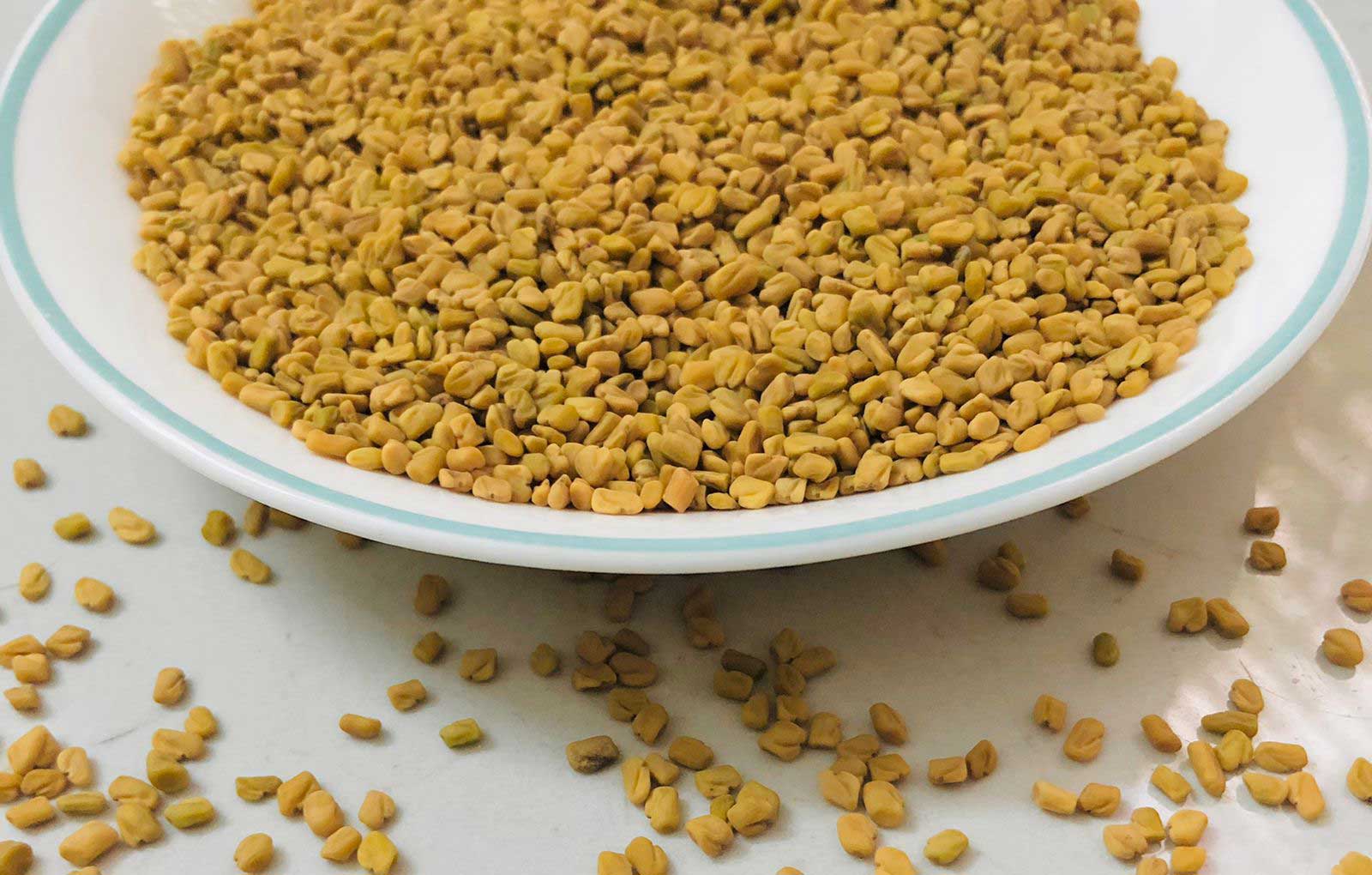Fenugreek is common herb. Its seeds are commonly used in Indian homes as a condiment for seasoning. The medicinal qualities of fenugreek seeds are known since ancient times and have been described in Unani and Ayurvedic literature.
Fenugreek seeds (मेथी दाना) reduces blood sugar level, suppresses the urinary excretion of sugar and relieves symptoms of diabetes. Fenugreek seeds are rich source of fibre, contain mucilaginous fibre. They also contain 4-hydoxyleucine - an unusual amino acid, known to reduce blood glucose and blood lipid levels.
National Institute of Nutrition, Hyderabad and in other countries have shown the beneficial effects of fenugreek seeds. However fenugreek leaves do not show such effect.
Fenugreek seed powder in the diet reduces blood glucose and urine sugar with concomitant improvement in glucose tolerance and diabetic symptoms in both type 2 and type 1 diabetic patients. Fenugreek improves glucose regulation in diabetics by delaying carbohydrate digestion and absorption and enhancing insulin action. It also lower the level of serum lipid such as cholesterol and triglyceride.
The quantity of fenugreek seeds to be consumed daily depends on severity of diabetes. To begin with 25 g of fenugreek seeds may be taken in two equal doses of 12.5 g each (approximately 2 teaspoon) along with lunch and dinner.
The seeds can be taken as such after overnight soaking in water or in powder form as a drink with water or butter milk. 15 mins before the meal. Fenugreek seed powder can be incorporated in preparation such as chapati, rice, dhal and vegetables. The preparations can be made salty or sour according to individual taste because bitter taste of seeds is however a drawback. You can make it palatable by including in Dalia, Dhokla, Dosa, Idli, Parantha, Pongal, Ragi roti, Rava dosa, vegetable omelette and Upma.
Precaution
1 — Fenugreek preparation are only useful as supportive therapy and the usual anti-diabetic treatment employed should be continued. However, it has been observed that the requirement of anti-diabetic drugs decrease with the use of fenugreek.
2 — The dietary caloric intake, particularly from saturated fats and simple sugar should be restricted and body weight should not be allowed to increase. In addition to the use of fenugreek seeds, regular physical exercise such as walking is beneficial.
3 — A few patients initially may develop diarrhoea or excess flatulence on consumption of fenugreek seeds. If they continue to have these problems, they can reduce the amount of fenugreek.
4 — Intake of sugar should be avoided.
Tips :
Another high dietary fibre foods : Chick pea, Ragi, Oats, Wheat, Maize, Poppy seeds, Lentils, Drumstick, Guar pods, Guava.
Food can be used liberally : Vegetables, Green Leafy Vegetables, Whole pulses, High Fibre Foods, Low GI Fruits.
Food to be used in moderation : Fats, Nuts, Cereal/ Roots/ Tubers, Milk products, Meat produces, Eggs, Artificial sweetener.
Food to be avoided : Sugar, Sweets, Honey, Jam and Jellies, Cakes and Pastries, Refined flour products, Juices and Soft drinks.

